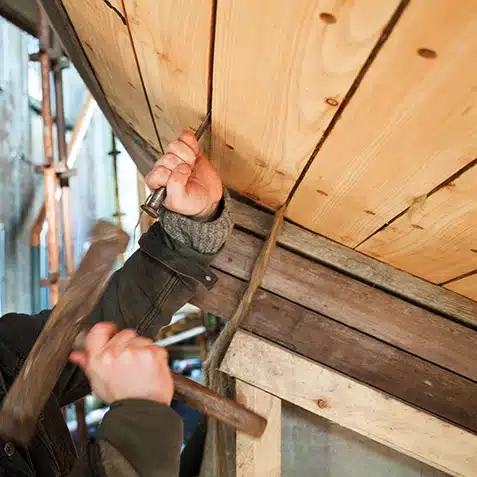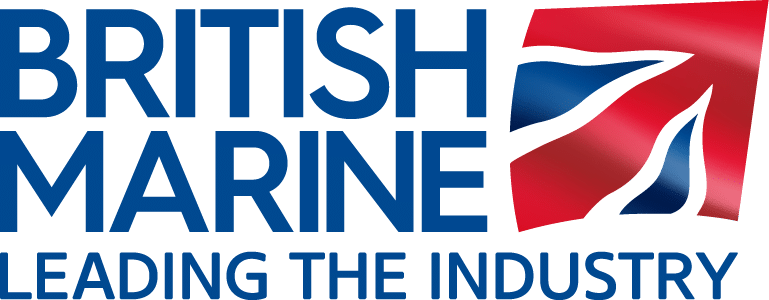Restoration of Historic Ships & Boats Course
Diploma in Restoration of Historic Ships & Boats
Restoration of Historic Ships & Boats
Maritime Training Academy’s online Historic Ship and Boat Restoration Diploma offers specialist training in restoring and preserving classic yachts, historic ships and traditional small craft.
Study online and learn how to assess vessel condition, work with wood, steel, and composite hulls, and apply heritage shipwright techniques to conservation and refit projects.
Designed for professionals, shipwrights, and heritage vessel enthusiasts, this recognised Historic Vessel Restoration qualification supports careers in maritime restoration, surveying and marine heritage preservation.

Historic Ship & Boat Restoration Qualification
Learn how to restore historic ships, classic yachts and traditional craft using shipwright techniques and maritime heritage standards.
Contact us below to enrol today, or speak with our experienced course advisors.

Duration:
12 - 18 months
Learn at your own pace
Online Course:
Study from anywhere

Cost:
Diploma: £3,195
Certificate: £2,295

Recognised by: 
Restoration of Historic Ships & Boats Diploma vs Certification
Choose the right path for your career:
Comprehensive Training: In traditional shipwright techniques, structural repair, heritage materials, and refit project planning.
Flexible Study Duration: 12 – 18 month depending when you enrol to the program, study online at your own pace, from anywhere in the world.
Marine Industry Career Opportunities: 100% Online, with access to our student learning portal
Long-Term Career Impact: Qualifies you for roles such as Marine Heritage Specialist, Historic Vessel Surveyor, Boat Restoration Consultant or Traditional Shipwright.
Global Recognition: Our Diplomas are recognised by the University of Portsmouth and are supported by industry associations.
Assignments: One assignment is required to be completed and submitted at the end of each module, based on that particular subject.
Certification: you will receive a PDF Digital certificate (Printed Certificate Completion Pack available).
Final Examination: There will be a final examination upon completing and submitting all student assignments (exams are sat in April or October).
Post-Nominal letters: On passing the Diploma you can also use these letters after your name: MTA Dip RHSB
Digital Course Badge: Upon successful completion students will receive an exclusive course badge for use on business cards, LinkedIn profiles and website(s)!
Diploma - £3,195
A globally recognised qualification for careers in historic ship restoration, vessel conservation and traditional boatbuilding across the marine heritage sector.
✔
✔
✔
✔
✔
✔
✔
✔
✔
✔
Certificate - £2,295
Specialist Restoration Training without formal assessments, for those who do not require a recognised ship restoration diploma.
✔
✔
✔
✔
✔
✔
Restoration of Historic Ships & Boats Curriculum: 10 Modules
Learn how to assess the condition of wooden, steel and composite vessels, identify structural issues and plan effective restoration strategies that respect heritage construction methods.
Our comprehensive Vessel Restoration Training covers traditional shipwright skills, sourcing authentic materials, repair techniques, and project planning. You’ll also explore marine heritage standards and gain the knowledge needed to support conservation, refit and preservation projects worldwide.
1. Deciding On A Vessel To Restore
- Assessing your needs and aspirations
- Dreams to reality
- Building and finding the right team
- Project research
- Evaluation of the potential project
- Acquisition of the vessel
- What skills are required
- Types of Historic Vessels
- Historic Ships Registers and the politics of funding for ship preservation
2. Support & Finance
- Where/when to restore
- Developing a plan for Restoration/Conservation
- Budgeting and costs
- Sourcing Funding
- Project management
- Sourcing original or replica parts
- Could a replica vessel be the better option
- Marketing your project/public interest
- Case study HMS WARRIOR
3. Managing The Process
- “SOLAS” Requirements
- Location of vessel/Stability
- Legal requirements
- VAT/Charitable Status
- Condition survey on older vessels
- Reaching a decision on Conservation or Restoration
- Conservation of the vessel while work in progress
- Cast Study SCOT II
4. Preservation Or Restoration/Rebuild
- Will she be preserved or restored
- Reconstruction techniques
- Reconstruction-Riveted Ships/Boats
- Reconstruction-Wooden Ships/Boats
- Adaptation for different use
- Sails/Rig types
- Assessing the historical importance of the vessel
- Common ship/boatbuilding terms
- Cast Study SS GREAT BRITAIN
5. The Restoration Project
- History/Background
- Construction techniques
- Designers/old ships plans
- How much original to keep/compromise
- Health & Safety
- Re-designs what is required
- Who can help and where to find them
- Sub-Contracting/Tools/Machinery/required
- Case Study MEDWAY QUEEN
6. Mechanical Systems/Steam Or Diesel
- Propulsion – engines/stern gear/rudders
- Conforming to SOLAS/Class regulations
- Modern systems required
- Layout design/steam and or diesel
- Safety equipment required/Nav aids
- Health & Safety during Fit-Out
- Electrical systems/fire systems
- Painting/finishing
7. Keeping The Project/Momentum Going
- New versus old in the build
- How much can be reused
- What if?
- Finding & Keeping Volunteers
- Skills required from volunteers
- Fund raising campaigns
- Press & Media
- Still to decide
8. Providing Outcomes For Employment/Training Opportunities
- Knowledge not passed on is just lost
- Main benefits of the project
- Can it provide jobs/training opportunities
- Health & Safety for apprentices and the public
- Skills required for training apprentices and such
- Possible community based benefits
- Possible Commercial benefits
- Challenges of a volunteer workforce
9. Use Of The Vessel Once Complete
- Launching/sea trials
- Who is to benefit from the completed vessel
- Museum Vessel?
- Working Vessel?
- Static Display Vessel?
- Training Vessel?
- Commercial/business use Vessel
- Business case for future care and maintenance of the Vessel
10. Future Upkeep
- Maintenance
- Future funding requirements
- Added value to Maritime History
- Surveys required
- Who is to look after the vessel once completed
- Who will own the vessel and look after the upkeep
- How to thank Volunteers and Benefactors
- Long term sustainability
- Case Studies CANGARDA. HMS TRINCOMALEE, other notable vessels
Hear from our Students
Meet the Course Director
Ian Biles
Managing Director att Maritime Services International
Ian has led Maritime Services International to become one of the world’s leading surveying companies. Ian’s qualifications include: Master Mariner, RYA Yachtmaster Ocean, Naval Architect (BEng Ship Science) and Business Management (MA Business Management).
Ian started sailing with his father at the age of 12 and as a result went to sea upon finishing school. He sailed worldwide for 13 years on a range of commercial ships and spent his leave sailing yachts around the UK and in the Mediterranean.
During his career he has worked on the Cutty Sark, Discovery, Chauncy Maples, Robin and was the lead consultant on the restoration of the Yavari on Lake Titicaca in Peru.

Historic Ship & Boat Restoration Course FAQs
Find out more about the course with our FAQs below.
How do I become a historic ship restoration specialist?
Start by enrolling on a recognised training programme. This diploma teaches traditional shipwright methods, vessel assessment and restoration project planning — preparing you for work in marine heritage and boat repair sectors.
What qualification will I receive from this ship restoration course?
You’ll earn a Diploma in Historic Ship and Boat Restoration from the Maritime Training Academy — a respected credential across the marine heritage and refit industries.
Does the training cover wooden and steel vessels?
Yes. You’ll learn how to restore wooden, steel, aluminium and composite hulls using authentic materials and conservation-focused repair techniques.
How much does a historic ship restorer earn?
Salaries vary widely by role and experience, but restoration specialists typically earn between £30,000 and £55,000. Higher earnings are possible in senior roles or consultancy positions.
Is this course suitable for boat owners or enthusiasts?
Absolutely. The diploma is open to both professionals and private owners seeking to restore or maintain classic vessels to traditional standards.
Can I work internationally with this ship restoration diploma?
Yes. The qualification is recognised across the marine industry and supports work in restoration yards, heritage ship projects and global vessel conservation initiatives.
See our FAQ page for more questions answered about MTA courses.
Supported by:


Why Choose The Maritime Training Academy?

Flexible
Online learning allows you to study in your own time, at your own pace from anywhere in the world. This saves on travel and classroom costs and allows you to fit your studies around your job and progress your career.

Supportive
While the nature of distance learning is independent study, we recognise the importance of support. Students can contact us at any time during their course for assistance and our team of industry experts are always on hand for advice.

Expertise
We have over 50 industry experts writing, developing and advising on our course material. We truly believe that allowing students to tap into their expertise and knowledge is of the utmost importance to fulfil your dream career.
If you would prefer to complete this as a classroom-based course, please contact us.
